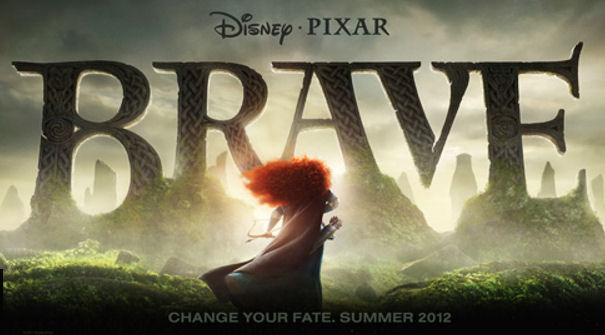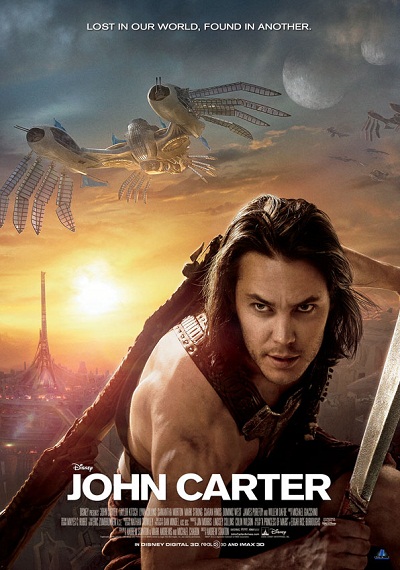 |
| Disney Pixar’s Brave, in theatres June 2012 |
A few days ago, Disney’s Pixar released its trailer for its newest animated film, Brave. Why is this such a huge deal? Why am I so freaking excited to see it?? Because out of the 12 films Pixar has produced, not one has featured a female protagonist. Not one. Until now.
Pixar’s first fairy tale,
Brave follows the story of Princess Merida, voiced by Kelly McDonald (
Boardwalk Empire,
No Country for Old Men). I know. You’re probably thinking ANOTHER princess?! Young girls are entrenched in sexist princess culture. But trust me, this one’s a bit different.
In the Scottish Highlands, “courageous” and “impetuous” Princess Merida is “a skilled archer” who would rather focus on her archery than her role as a docile, demure princess. She defies her parents and tradition, determined to forge her own path in life. But her actions “unleash chaos and fury in the kingdom.” After she turns to a Witch (Julie Walters) who grants her an “ill-fated wish” (yes, this is still a fairy tale), Merida attempts to undo a curse. Her bravery will be tested as she tries to change her fate.
Merida’s mother, Queen Elinor (Emma Thompson), tells her in the trailer:
“A lady enjoys elegant pursuits.”
But Merida replies:
“I want my freedom.”
You go, girl! (Sorry, couldn’t resist the clichéd 90s catchphrase.)
Too many animated films don’t feature girls and women in leading roles. Originally titled
Rapunzel, Disney’s
Tangled, the most recent animated film featuring a girl,
was renamed a gender-neutral title to be less girl-centric. Its marketing didn’t just focus on Rapunzel but featured “bad-boy” thief Flynn Ryder in order to lure a male audience. Lovely. ‘Cause movies shouldn’t be geared to girls, only to boys. You know, ’cause they’re the only ones who really matter.
Male characters dominate animated films.
Shrek,
Ice Age,
Rango,
Kung Fu Panda and the entire pantheon of Pixar’s films (
Toy Story,
Up,
Wall-E, etc.) put male roles front and center. Out of Disney’s 51 animated movies, only 12 feature a lead female character. When you DO find an animated female protagonist, she’s usually a princess. Aren’t there any more roles for girls and women??
The exception to this rule are the Japanese-based Studio Ghibli’s films (
My Neighbor Totoro, Kiki’s Delivery Service and Spirited Away) which often feature female leads, sans royal titles and tiaras.
Women rarely direct animated films.
Brave is the first Pixar film to feature a woman as director (Brenda Chapman) and all female screenwriters (Brenda Chapman & Irene Mecchi). Although Chapman,
who worked on the project for 6 years, was fired (such bullshit) and replaced by Mark Andrews, although she’ll still receive credit as co-director. Yes, women can certainly be perpetrators of sexism, gender stereotypes and tropes. But having more women as writers and directors usually leads to more female protagonists and perspectives.
Inspired by
Chapman’s relationship with her daughter,
Brave also features two parents, a mother and a father. It’s rare for an animated movie to have a loving mother, considering too many Disney films kill off mothers, demonize stepmothers and solely focus on both daughters’ and sons’ relationships with their fathers.
In her eye-opening book Cinderella Ate My Daughter: Dispatches from the Front Lines of the New Girlie-Girl Culture, Peggy Orenstein writes about Brave’s premise:
“Sounds promising, though I cannot help but feel, after waiting patiently (and sometimes not so patiently) through twelve genre-busting films about male robots, male superheroes, male cowboys, male rats, male cars, male bugs, male fish, and a small male mailman, that it would have been nice if the movie was not about a princess, even a kick-ass one. Honestly, is that too much to ask?”
Nope. It really shouldn’t be too much to ask.
Yes,
Brave features another white girl as a princess. We desperately need more racial diversity in animated films (and live-action ones too). I mean it took Disney only 72 years to have its first African-American princess with Tiana in
The Princess and the Frog (seriously, Disney?? What the hell’s wrong with you?!) And we sure as hell don’t need another goddamn princess. Princesses are EVERYWHERE. Christ, even the inquisitive
Dora the Explorer has been turned into a freaking princess in some merchandising. Princesses don pink dresses, wear tiaras and wave scepters. Their only goal? To look pretty of course. Their looks matter more than their personalities.
Girlie-girl images saturate the media, telling girls to strive for physical perfection. Too many films focus on girls and young women wishing to be rescued and giving up their voice for love (um, can anyone say The Little Mermaid’s Ariel??). It’s refreshing to have a spunky, outspoken protagonist who’d rather pursue her dreams of archery than aspire to matrimony.
Girls should be valued for their intellect, skills and kindness. Not their beauty. Hopefully, Brave will help shatter the rigid princess imagery, paving the way for more empowered female protagonists. Girls (and boys) deserve better role models than bullshit stereotypes.
‘Brave’ will be released in theatres June 2012.
Megan Kearns is a feminist vegan blogger, freelance writer and activist. She blogs at The Opinioness of the World, where she shares her opinions on gender equality, living cruelty-free, Ellen Ripley and delish vegan cupcakes. Her work has also appeared at Arts & Opinion, Fem2pt0, Italianieuropei, Open Letters Monthly, and A Safe World for Women. She earned a B.A. in Anthropology and Sociology and a Graduate Certificate in Women and Politics and Public Policy. Megan lives in Boston with more books than she will probably ever read in her lifetime. She is a Monthly Guest Contributor to Bitch Flicks
.


